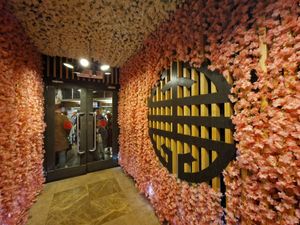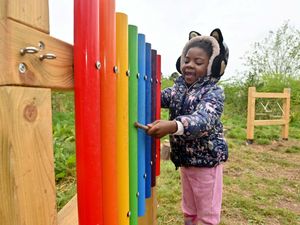Grand Theatre expansion plans 'still on' despite apartment development next door
Council chiefs insist expansion plans for the Grand Theatre are still on track – despite the building next door being transformed into an apartment block.
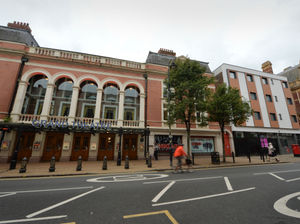
Bosses at Wolverhampton's iconic 127-year-old venue had planned to bulldoze the old post office next to it and replace it with a new 'arts park' dubbed The Green Room under plans first unveiled in 2019.
However, the site's owner has since transformed it into Shakespeare House, a block of one-bedroom 'luxury' apartments available to rent at £825 per month.
Wolverhampton Council earmarked the expansion of the Grand as one of 11 projects for the city's £25 million Towns Fund cash.
The authority said the 'arts park' was still very much in its plans, and that an offer to acquire the building was currently under consideration following talks with the freeholder.
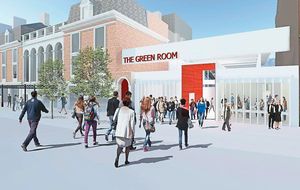
A spokesperson for the council said: "By working in partnership with the Grand Theatre, the council is supporting and progressing the theatre’s cultural and creative development, with the ultimate aim to develop it’s Green Room proposal.
"The Towns Fund business case for the arts park provides funding to acquire the building known as 66-70 Lichfield Street through either a voluntary negotiated route or the use of statutory compulsory powers.
"The chosen route will determine the delivery programme.
"There are short-term use proposals that would utilise the existing fabric of the building, with a longer-term programme to initiate the Green Room concept.
"The council’s commercial consultants have held several meetings with the freeholder’s representatives and an offer has been submitted to acquire the building, which is currently being considered."
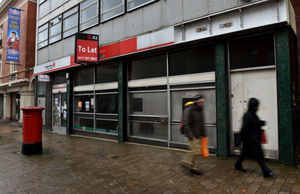
The old post office closed down in 2013 and moved to a new site over the road. Theatre chiefs initially planned to buy the building and turn it into a restaurant, but the scheme never came to fruition.
In 2019 planning permission was granted for the Green Room scheme, which was estimated to cost around £3 million.

